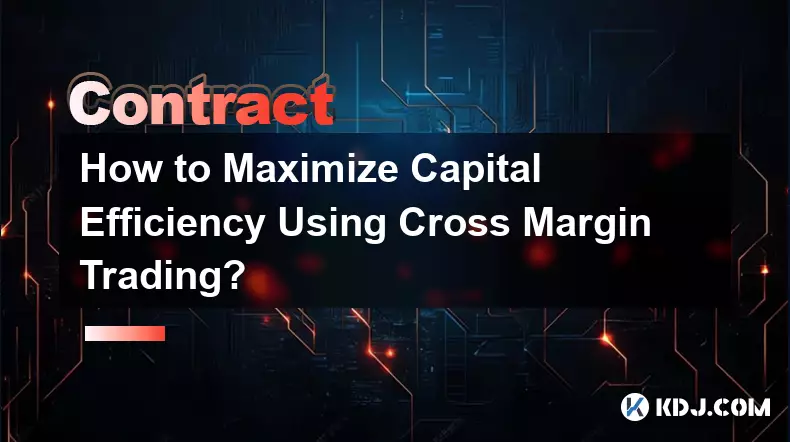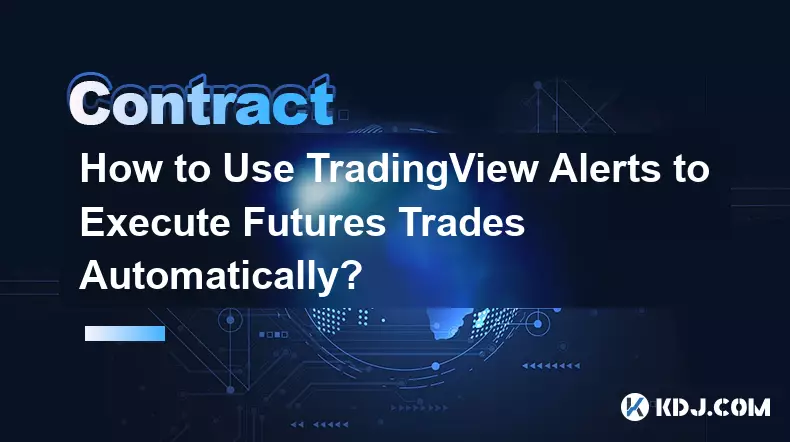-
 bitcoin
bitcoin $87959.907984 USD
1.34% -
 ethereum
ethereum $2920.497338 USD
3.04% -
 tether
tether $0.999775 USD
0.00% -
 xrp
xrp $2.237324 USD
8.12% -
 bnb
bnb $860.243768 USD
0.90% -
 solana
solana $138.089498 USD
5.43% -
 usd-coin
usd-coin $0.999807 USD
0.01% -
 tron
tron $0.272801 USD
-1.53% -
 dogecoin
dogecoin $0.150904 USD
2.96% -
 cardano
cardano $0.421635 USD
1.97% -
 hyperliquid
hyperliquid $32.152445 USD
2.23% -
 bitcoin-cash
bitcoin-cash $533.301069 USD
-1.94% -
 chainlink
chainlink $12.953417 USD
2.68% -
 unus-sed-leo
unus-sed-leo $9.535951 USD
0.73% -
 zcash
zcash $521.483386 USD
-2.87%
What is the difference between Bitcoin leveraged trading and contract leveraged trading?
Contract leveraged trading offers lower risk than Bitcoin leveraged trading since it doesn't involve holding the underlying asset, but may have lower liquidity.
Nov 15, 2024 at 05:34 pm

Leveraged trading is a powerful tool that can amplify both profits and losses in cryptocurrency trading. However, there are two main types of leveraged trading: Bitcoin leveraged trading and contract leveraged trading. While both types of leveraged trading have their own advantages and disadvantages, it is important to understand the key differences between them in order to make informed trading decisions.
Bitcoin Leveraged TradingBitcoin leveraged trading involves borrowing Bitcoin to increase the size of a trade. This allows traders to potentially make larger profits, but it also comes with a higher level of risk. If the price of Bitcoin moves against the trader's position, they could lose more money than they initially invested.
Key Features of Bitcoin Leveraged Trading:- Borrowed funds: Traders borrow Bitcoin from a broker or exchange in order to increase the size of their trade.
- Higher potential profits: Borrowing Bitcoin allows traders to make larger profits than they would be able to with their own capital alone.
- Increased risk: Bitcoin leveraged trading comes with a higher level of risk, as traders could lose more money than they initially invested.
Contract leveraged trading involves using a financial instrument known as a futures contract or a perpetual contract. These contracts allow traders to speculate on the future price of Bitcoin without actually owning the underlying asset. Contract leveraged trading also allows for a high degree of leverage, which can amplify both profits and losses.
Key Features of Contract Leveraged Trading:- Contracts: Traders use futures contracts or perpetual contracts to speculate on the future price of Bitcoin.
- No need to own Bitcoin: Contract leveraged trading does not require traders to own the underlying asset, which can reduce the risk of holding Bitcoin.
- High leverage: Contract leveraged trading allows for a high degree of leverage, which can amplify both profits and losses.
| Feature | Bitcoin Leveraged Trading | Contract Leveraged Trading |
|---|---|---|
| Underlying asset | Bitcoin | Futures contract or perpetual contract |
| Leverage | High | High |
| Risk | Higher | Lower |
| Liquidity | Lower | Higher |
| Margin calls | Can occur | Can occur |
| Liquidation | Can occur | Can occur |
| Trading fees | Typically higher | Typically lower |
| Settlement | Physical delivery of Bitcoin | Cash settlement |
The best type of leveraged trading for a particular trader will depend on their individual circumstances and preferences. However, it is important to understand the key differences between Bitcoin leveraged trading and contract leveraged trading before making a decision.
Considerations for Choosing Bitcoin Leveraged Trading:- Need for higher leverage: If a trader needs to use a higher level of leverage to make larger profits, Bitcoin leveraged trading may be a more suitable option.
- Willingness to hold Bitcoin: Bitcoin leveraged trading requires traders to hold the underlying asset, which may not be suitable for all traders.
- Risk tolerance: Bitcoin leveraged trading comes with a higher level of risk, which should be carefully considered before making a decision.
- No need to hold Bitcoin: Contract leveraged trading does not require traders to own the underlying asset, which can be beneficial for traders who want to avoid the risks of holding Bitcoin.
- Lower liquidity: Contract leveraged trading typically has lower liquidity than Bitcoin leveraged trading, which can make it more difficult to enter or exit trades quickly.
- Margin calls: Contract leveraged trading can result in margin calls if the trader's position moves against them, which can lead to significant losses.
Bitcoin leveraged trading and contract leveraged trading are both powerful tools that can be used to amplify both profits and losses in cryptocurrency trading. However, it is important to understand the key differences between these two types of leveraged trading in order to make informed trading decisions.
Disclaimer:info@kdj.com
The information provided is not trading advice. kdj.com does not assume any responsibility for any investments made based on the information provided in this article. Cryptocurrencies are highly volatile and it is highly recommended that you invest with caution after thorough research!
If you believe that the content used on this website infringes your copyright, please contact us immediately (info@kdj.com) and we will delete it promptly.
- Exaverse Roars into the Roguelike Scene: A Dinosaur Adventure Awaits!
- 2026-02-05 00:30:01
- SpaceX, Dogecoin, and the Moon Mission: A New Era of Crypto in Space
- 2026-02-05 04:05:02
- Bitcoin Price Dips Below $74,000, Digital Asset Faces Key Test Amidst Shifting Market Dynamics
- 2026-02-05 04:05:02
- Big Apple Bites: AI Forecasts Staggering Ethereum Price Record as Market Navigates Volatile Waters
- 2026-02-05 01:10:02
- Unlock Your Edge: The Ultimate Guide to MEXC Referral Code, USDT Bonus, and Fee Discounts
- 2026-02-05 01:00:02
- Navigating the New York Minute: Crypto Exchange Fees in 2026, Globally Unpacked
- 2026-02-05 01:05:02
Related knowledge

How to Manage Emotions and "Revenge Trading" in Futures?
Feb 05,2026 at 12:19am
Understanding Emotional Triggers in Futures Markets1. Market volatility directly impacts psychological states, often amplifying fear or euphoria based...

How to Use Volume Profile to Find Key Futures Entry Levels?
Feb 04,2026 at 11:39pm
Understanding Volume Profile Structure1. Volume Profile displays the distribution of traded volume at specific price levels over a defined time period...

How to Maximize Capital Efficiency Using Cross Margin Trading?
Feb 05,2026 at 12:40am
Cross Margin Trading Fundamentals1. Cross margin trading allows traders to use their entire account balance as collateral for open positions across mu...

How to Use Exponential Moving Averages (EMA) for Futures Trend Following?
Feb 05,2026 at 04:40am
Understanding EMA Mechanics in Futures Markets1. Exponential Moving Averages assign greater weight to recent price data, making them more responsive t...

How to Use TradingView Alerts to Execute Futures Trades Automatically?
Feb 04,2026 at 09:00pm
Setting Up TradingView Alerts for Futures Contracts1. Log into your TradingView account and open the chart of the desired futures instrument—such as B...

How to Use One-Way Mode vs. Hedge Mode in Futures Trading?
Feb 04,2026 at 06:19pm
Understanding One-Way Mode1. One-way mode establishes a single position direction per asset—either long or short—at any given time. 2. Traders cannot ...

How to Manage Emotions and "Revenge Trading" in Futures?
Feb 05,2026 at 12:19am
Understanding Emotional Triggers in Futures Markets1. Market volatility directly impacts psychological states, often amplifying fear or euphoria based...

How to Use Volume Profile to Find Key Futures Entry Levels?
Feb 04,2026 at 11:39pm
Understanding Volume Profile Structure1. Volume Profile displays the distribution of traded volume at specific price levels over a defined time period...

How to Maximize Capital Efficiency Using Cross Margin Trading?
Feb 05,2026 at 12:40am
Cross Margin Trading Fundamentals1. Cross margin trading allows traders to use their entire account balance as collateral for open positions across mu...

How to Use Exponential Moving Averages (EMA) for Futures Trend Following?
Feb 05,2026 at 04:40am
Understanding EMA Mechanics in Futures Markets1. Exponential Moving Averages assign greater weight to recent price data, making them more responsive t...

How to Use TradingView Alerts to Execute Futures Trades Automatically?
Feb 04,2026 at 09:00pm
Setting Up TradingView Alerts for Futures Contracts1. Log into your TradingView account and open the chart of the desired futures instrument—such as B...

How to Use One-Way Mode vs. Hedge Mode in Futures Trading?
Feb 04,2026 at 06:19pm
Understanding One-Way Mode1. One-way mode establishes a single position direction per asset—either long or short—at any given time. 2. Traders cannot ...
See all articles










































































